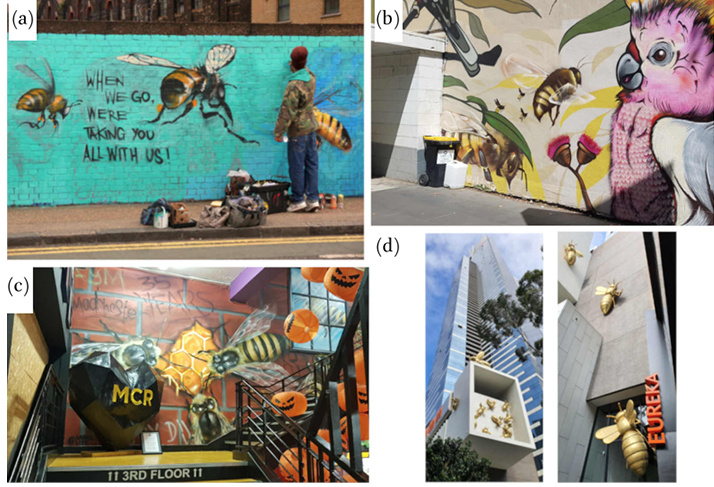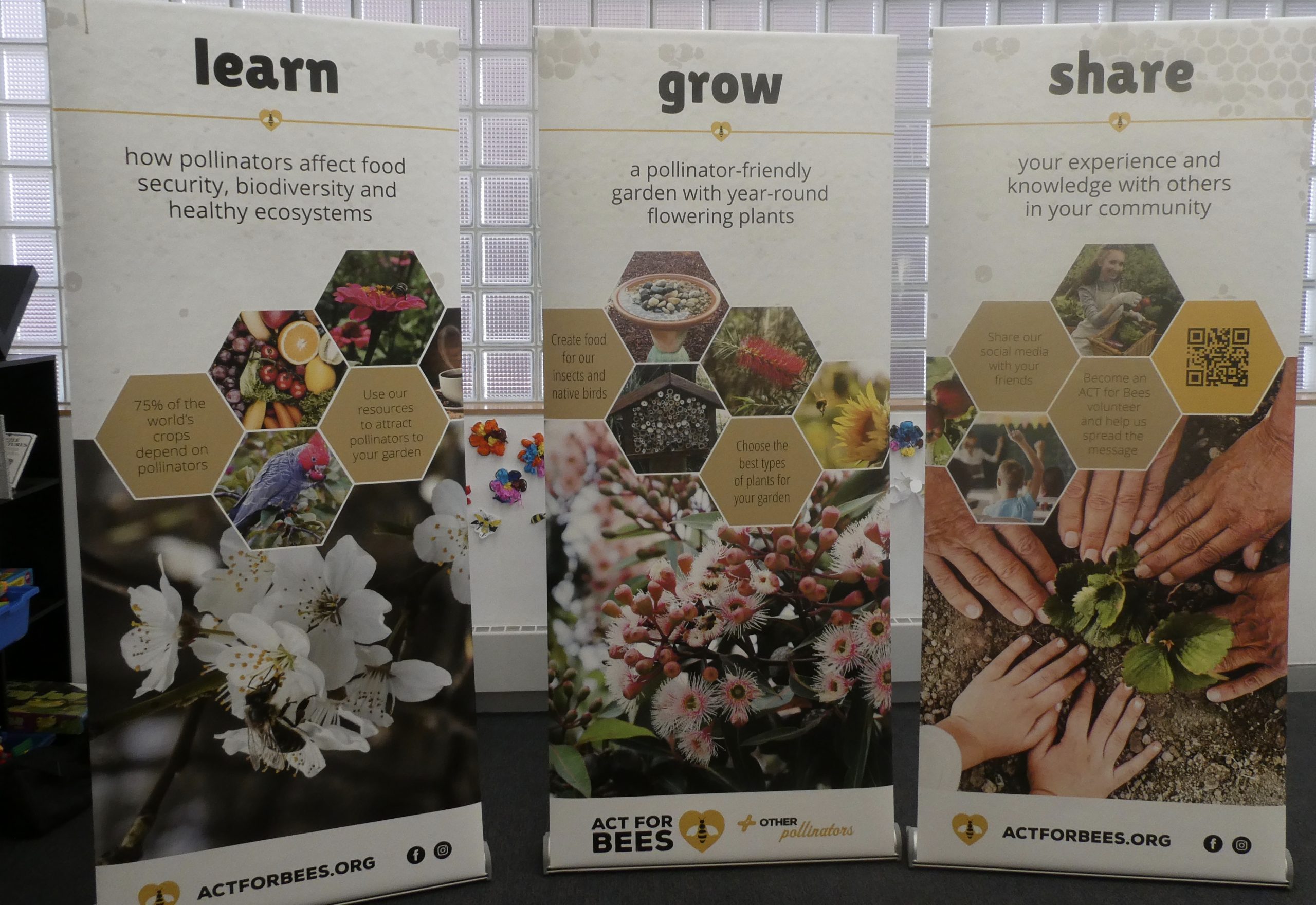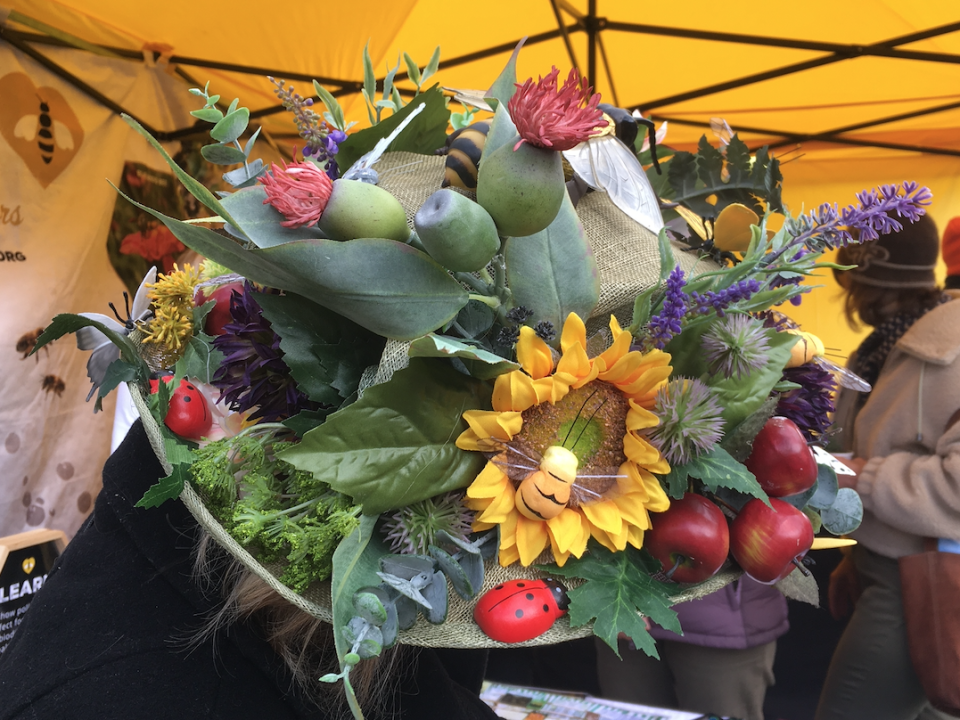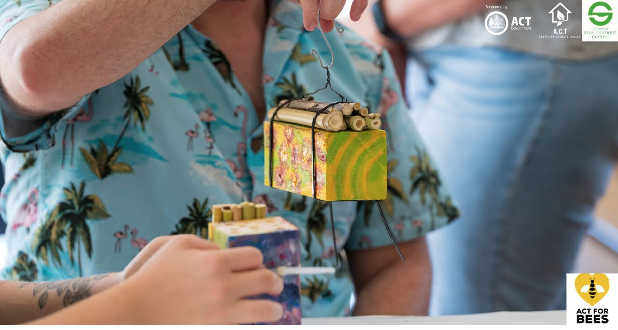
Celebrate World Bee Day May 20th on May 21st!
April 12, 2022
ACT For Bees Spring Buzzz 2022
October 10, 2022We’re buzzing as we’re getting ready for the World Bee Day celebrations and there is lots to do. We’ve got more details about the celebrations below but first, we wanted to share with you our spectacular new banners which arrived today.
We are very grateful to the Rotary Club of Hall for a grant which has enabled us to spruce up our public image and provide more information to the public. Thanks to the amazing skill and expertise of Vicki in collaboration with Leandi, a graphic designer, you’ll be able to get up close to these wonderful pull up banners on Saturday.


The celebrations kick off with a free webinar on 17 May on Powerful Pollinators by the Wheen Bee Foundation. The Food and Agricultural Organisation will also celebrate World Bee Day through a free virtual event, under the theme Bee Engaged: Celebrating the diversity of bees and beekeeping systems.
The ACT Region celebrations start with a ticketed event at the Italian Embassy on Sustainable Farming on 20 May. Then on Saturday 21 May the Rotary Club of Hall continues its wonderful tradition of hosting World Bee Day celebrations in our region at the Capital Region Farmers’ Market at Exhibition Park. Check out the fun filled programme here. We’re invited to come to the market dressed in our best bee-themed costumes and to take photos in front of the Farmers’ Market Hive Wall.

So, as we head to the ballot box, we could do well to keep the words of the late (great) Polly Higgins in mind who said, “……. we are at a point of emergency. Now the interesting thing with the word “emergency” is that emergency means “being in a state of emergence” so that’s not necessarily something to fear, but it’s a moment in time when we can actually turn around and something new can come into being. And when you look at it, ninety-three people in the world [who] ….. happen to be heads of state ………..hold the balance of what happens to our planet in their hands. They hold the outcome for people and planet, those ninety-three. That’s nothing. We can make that happen, I see no reason why not.”[1]
[1] Letters to the Earth, Writing to a Planet in Crisis by Jackie Morris and Emma Thompson, 2019

Bees in Art
ACT for Bees website page Bee Art Movement has a fascinating read “Bee Representations in Human Art and Culture through the Ages’ by WA native bee scientist Kit Prendergast and a compilation of international authors. It is a journey into the history of human’s relationship with bees across history and diverse cultures.
Some great Australian links on bees
Check out this wonderful website from Valley Bees which has information on planting to attract different types of native Australian bees (as well as honey bees of course!). It includes lots of other interesting material on the different types of native bees, pollination, bee walls and basic bee keeping. A fantastic resource for better understanding bees and what we can do to help them.
Aussie Bee has great resources to help ID our incredible diversity of local Australian native bees.
See also these links on all things to do with bee keeping and honey production:
A Beekeeper’s Guide to Australian Leptospermum Trees and Honey
Canberra Region Beekeepers is a vibrant community of beekeepers passionate about bees with regular courses in beekeeping and meetings on the 3rd Wednesday of every month.
Bee publications Department Primary Industry (DPI) NSW
We hope that you will join in World Bee Day wherever you are. Thank you pollinators!




